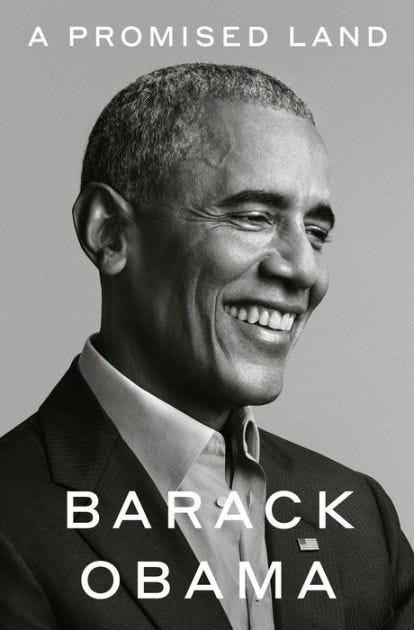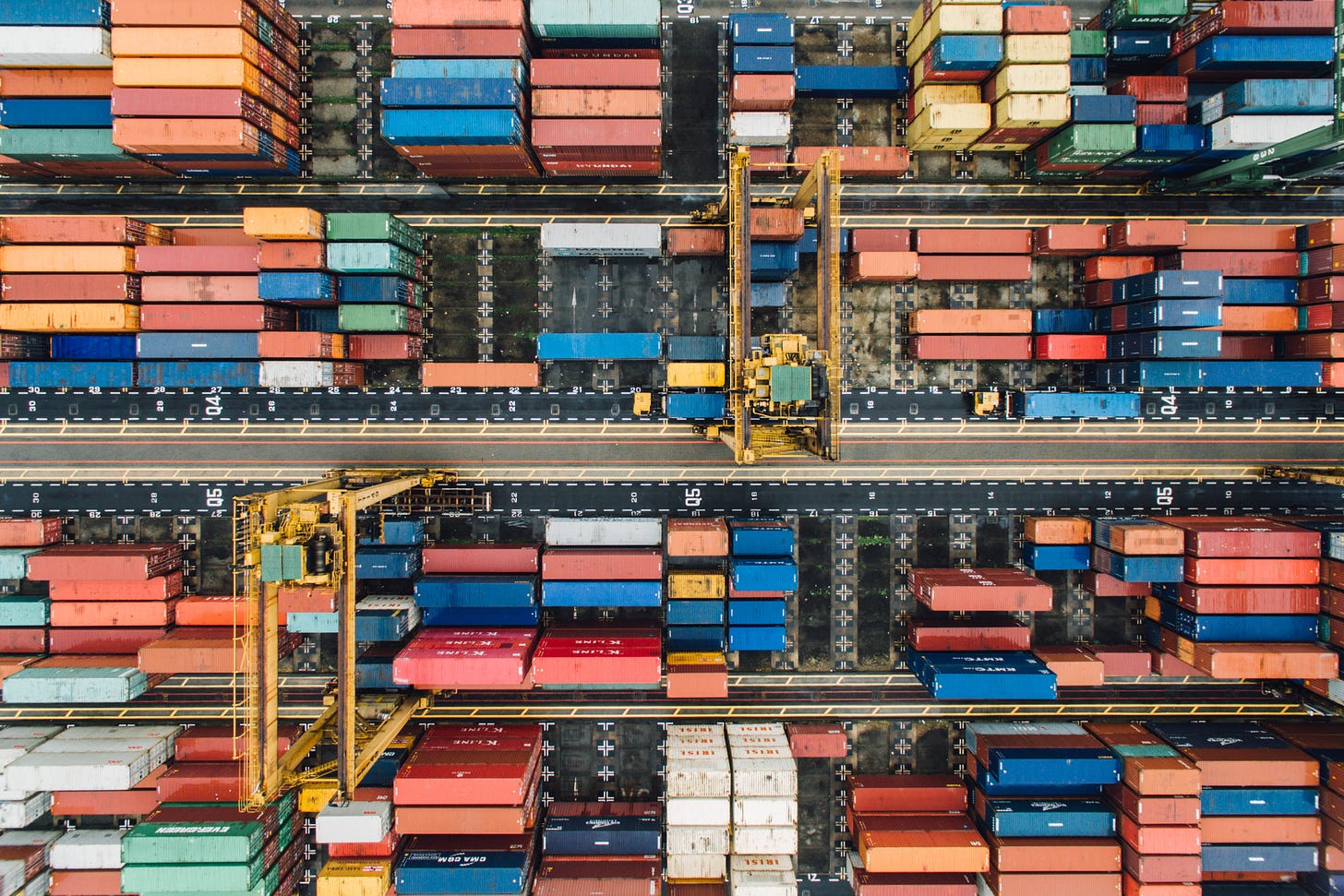Sunday Snapshots (12/13/20) – Obama's First Term, Reid Hoffman and Airbnb, UPS's dangerous dance
In which I wrap up my thoughts on the Obama autobiography
Hey everyone,
Greetings from Washington, D.C.!
I’m in the middle of writing a couple of year-end pieces along with an upcoming collaboration about a beloved apparel brand.
Stay tuned for those and if you’ve enjoyed reading or gotten any value from Snapshots in 2020, consider sharing it with your friends or on social media.
In this issue of Snapshots, I want to explore:
Obama’s first term legacy
Reid Hoffman and the Airbnb investment
UPS and the dangerous dance of throttling shipping
Delivery apps, Amazon’s 3rd party ecosystem, and something fun
Book of the week
What started as some innocuous comments about Obama being a good writer and political arbitrage opportunities turned into a grander examination into what being the most powerful person in the world means.
Last week, I went a bit cynical:
And that is perhaps the deep contraction of the Obama Presidency. In what would be a recurrent theme in his presidency, Barack Obama the passionate ran into Barack Obama the pragmatist – and Barack Obama the passionate lost without much of a fight.
As I wrapped up the book this weekend, I wanted to re-count some Obamas (there are quite a few) that I enjoyed throughout the book.
The history teacher Obama that explains the context for everything from the healthcare system and its inefficiencies, taking us through the stakeholders and political incentives. Or how bi-partisanship was becoming less popular as modern mass media fueled by the power of the internet created echo chambers. Or when he explains how taking down Osama Bin Laden was not just an emotional victory for millions of Americans and citizens worldwide whose lives were changed on that fateful day in September of 2001, but also a strategic priority as Bin Laden continued to inspire and recruit thousands of impressionable young men into the ranks of the most sophisticated terrorist network the world has ever seen.
I enjoyed the empathetic Obama who thinks about how the other person is feeling – whether that’s Hillary Clinton when it’s clear that she is going to lose to him in the primary or Chinese Premier Hu Jintao who is bound by dual responsibilities to his feudal and industrialist constituents.
I particularly enjoyed the lesser-angel Obama when he gives someone a dressing down when they act out of line. His harsh rebuke in the Oval of Michael Mullen and Robert Gates when the series of leaks from the defense and intelligence establishments across DC seemed to be designed to box him in to committing more troops in Afghanistan – “Did I not make myself clear about how I wanted time to evaluate McChrystal’s [the General who proposed the increase in troops] assessment? Or does your building just have a basic lack of respect for me?” I enjoyed it when he did the same to Premier Wen when it came to China’s reluctance to sign a climate accord – “I’ve got my own megaphone, and it’s pretty big. If I leave this room without an agreement, then my first stop is the hall downstairs where all the international press is waiting for news. And I’m going to tell them that I was prepared to commit to a big reduction in our greenhouse gases, and billions of dollars in new assistance, and that each of you decided that it was better to do nothing.” As his personal aide Reggie Love said to him to him on the flight back to Washington, “That was some real gangster shit.”
As I wrapped up the book, I can also feel how the unique pressures of the Presidency shaped his decision-making – he is more strategizing and analytical in doing everything – and how it ages him through the pages.
Obama’s A Promised Land is a good, not a great Presidential autobiography. And the reason for that is very simple. It’s simply not been enough time since he left office. He’s still one of the most powerful – if not the most powerful – power brokers in American politics. I suspect the next volume which will cover his second Presidential campaign and gridlock created by the 2012 overturning of the Senate to Republicans to be a better book with better hindsight, even if he ultimately got “less” done in his second term. You know I’ll be here to write about it when he’s done writing it.
Long read of the week
Airbnb Reflections | Greylock by Reid Hoffman
Reid Hoffman is perhaps the most influential man in Silicon Valley with his tempered personal style, affable geeky demeanor, and deep experience in building some of the largest consumer tech companies – think PayPal and LinkedIn as just two examples from the top of my head.
So a postmortem on his investment in Airbnb as a part of his venture capital company Greylock? Sign me up.
What follows in the next 3000 words is an inside look at how Reid’s mind works (a modern complement to his former chief of staff Ben Casnocha’s timeless blog post about his time with Hoffman.) From the importance of how an investment opportunity is framed to how Airbnb survived the COVID-19 pandemic (and perhaps came out of it stronger than before), Reid shares anecdote after anecdote about Brian Chesky and his co-founders.
It was probably my favorite read of this IPO season.
Business move of the week
UPS Slaps Shipping Limits on Gap, Nike to Manage E-Commerce Surge
Most of us think little about how the white bubble packages and Prime-taped boxes on our front porch or mailboxes get there. But the pre-COVID e-commerce trend and the during-COVID e-commerce boom is built on the backs of this highly visible but little-thought-about network of delivery vans and mailmen.
One of the key players in this hidden ecosystem is UPS. This week, it placed shipping limits on large retailers to ship packages through its delivery network. Some disconnected thoughts on this dangerous dance:
Delivery times typically get pushed back in general during the Black Friday/Cyber Monday surge. While customers are divinely discontent and all that, they intuitively understand that this is to be expected.
By codifying this throttling, UPS strategically pushes large retailers to try to develop their own delivery networks a la Amazon. If that happens, that’s a significant hit to UPS’s business.
It also sets a bad precedent for the future. Will this happen every year? That would probably be unacceptable to me as a large retailer.
At the end of the day, issues with peak demand is a mathematical problem as much as it is a business one. You can’t design for it because otherwise most of your capacity will be unused for most of the year. But not being prepared for it means having to pull moves like this. Any strategy here will have tradeoffs. It’ll be interesting to see if there are any long-term decisions that come out of this one.
Odds and ends of the week
Something serious, something interesting, and something fun:
Apps Are Helping to Gut the Restaurant Industry: Scathing review of how delivery apps cut into already razor-thin margins and make small businesses dependent on them. A sobering read for tech maximalists.
The Amazon Third Party Seller Ecosystem Might be the Most Important Thing Since the iOS App Store by Ali Hamed: Great read on how Amazon powers a vibrate third party seller ecosystem.
Epic Rap Battles of History: Harry Potter vs. Luke Skywalker: Now that we’ve all had our vegetables for Sunday, check out this rap battle between two pop culture icons. Bars.
That wraps up this week’s newsletter. You can check out the previous issues here.
If you want to discuss any of the ideas mentioned above or have any books/papers/links you think would be interesting to share on a future edition of Sunday Snapshots, please reach out to me by replying to this email or sending me a direct message on Twitter at @sidharthajha.
Until next Sunday,
Sid

